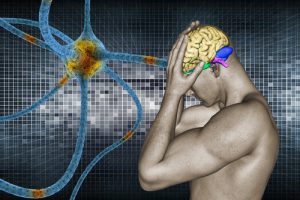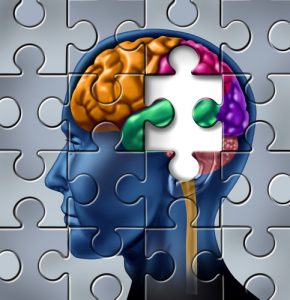Hypnosis and Hypnotherapy: Modalities to Improve Health
Hypnosis has become a popular treatment in a variety of areas, and many people seeking self-improvement have had positive reports on its effectiveness. The origins of this therapy date back to ancient times, with roots in spiritual meditation and mass chance or prayers. In modern practice, hypnosis has been used as a means for patients to positively change patterns of behavior that have negative impacts on their everyday lives. These behaviors often include smoking, poor diet, phobias, exam anxiety, and various mood disorders. Hypnosis also has its applications in medical treatments for some physical conditions such as allergies, headaches, and fibromyalgia. Studies have shown that when hypnosis is combined with traditional medicine and /or therapies, the results are often better than with conventional treatment alone.
According to John H. Stewart of the Mayo Clinic, smokers with goals of quitting have had much higher success rates when they have sought the help of a hypnotherapist. In controlled studies, smokers who have undergone hypnosis were up to three and half times more likely to completely give up cigarettes over the courses of their lifetimes. Similar results have been shown for patients who are seeking to lose weight through healthier eating habits. Medical professionals who have studied hypnosis believe that these types of successes come from the increased susceptibility to suggestion that occurs in the mind during hypnosis sessions.
Hypnosis has also been effective in reducing anxiety during high-stress situations such as surgery or important exams. A study performed at London’s Imperial College of Medicine has shown that medical school students who underwent a certain number of hypnosis treatments were less susceptible to illness and were more relaxed while taking tests. The same has been reported for patients undergoing surgery. When hypnosis has been used prior to general anesthesia, many patients have had easier times managing their healing processes after surgery.
While some doctors and therapists may apply hypnosis more than others, plenty of evidence does support its helpfulness as part of a path to improved health. Hypnosis results present a strong case about the close connections between mind and body, and it is likely to have further advancements along with the rest of modern medicine.
Hypnosis has become a popular treatment in a variety of areas, and many people seeking self-improvement have had positive reports on its effectiveness. The origins of this therapy date back to ancient times, with roots in spiritual meditation and mass chance or prayers. In modern practice, hypnosis has been used as a means for patients to positively change patterns of behavior that have negative impacts on their everyday lives. These behaviors often include smoking, poor diet, phobias, exam anxiety, and various mood disorders. Hypnosis also has its applications in medical treatments for some physical conditions such as allergies, headaches, and fibromyalgia. Studies have shown that when hypnosis is combined with traditional medicine and /or therapies, the results are often better than with conventional treatment alone.
According to John H. Stewart of the Mayo Clinic, smokers with goals of quitting have had much higher success rates when they have sought the help of a hypnotherapist. In controlled studies, smokers who have undergone hypnosis were up to three and half times more likely to completely give up cigarettes over the courses of their lifetimes. Similar results have been shown for patients who are seeking to lose weight through healthier eating habits. Medical professionals who have studied hypnosis and hypnotherapy believe that these types of successes come from the increased susceptibility to suggestion that occurs in the mind during hypnosis sessions.
Hypnosis has also been effective in reducing anxiety during high-stress situations such as surgery or important exams. A study performed at London’s Imperial College of Medicine has shown that medical school students who underwent a certain number of hypnosis treatments were less susceptible to illness and were more relaxed while taking tests. The same has been reported for patients undergoing surgery. When hypnosis has been used prior to general anesthesia, many patients have had easier times managing their healing processes after surgery.
While some doctors and therapists may apply hypnosis more than others, plenty of evidence does support its helpfulness as part of a path to improved health. Hypnosis results present a strong case about the close connections between mind and body, and it is likely to have further advancements along with the rest of modern medicine.
Many health care professionals today are training to become certified hypnosis and hypnotherapy practitioners. While there are many programs available today, people must be cautious against programs that provide too little education and training. Training programs should generally provide for approximately two hundred hours of hypnosis courses and a clinical practicum. Less training than this will not prepare professionals to practice at a high level of proficiency. When seeking out a hypnosis or hypnotherapy practitioner, also check to see if the practitioner holds a national certification from a recognized certifying agency. This is important as certification provides consumers with the assurance that the practitioner is appropriately educated and adheres to high ethical and practice standards. The American College of Hypnotherapy is one organization that has developed high quality education standards and provides for continuing education for its members. You may preview their programs by conducting a search on any major search engine.
References:
Gruzelier, J., Levy, J., Williams, J., & Henderson, D. (2001). SELF-HYPNOSIS AND EXAM STRESS: COMPARING IMMUNE AND RELAXATION-RELATED IMAGERY FOR INFLUENCES ON IMMUNITY, HEALTH AND MOOD. Contemporary Hypnosis, 18(2), 73. Retrieved from EBSCOhost.
Halsband, U., Mueller, S., Hinterberger, T., & Strickner, S. (2009). Plasticity changes in the brain in hypnosis and meditation. Contemporary Hypnosis, 26(4), 194-215. doi:10.1002/ch.386
Stewart, J. H. (2005). Hypnosis in Contemporary Medicine. Mayo Clinic Proceedings, 80(4), 511-524. Retrieved from EBSCOhost.
Please also review our Hypnotherapy Certification Program and see if it matches your educational and professional needs.




